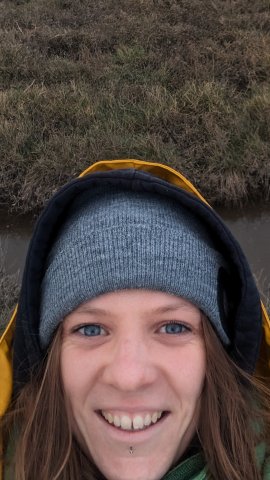Environmental microbiology research group
At the Institute of Ecology and Earth Sciences, the environmental microbiology and biotechnology group consists of researchers and doctoral students with backgrounds in environmental technology, microbiology, gene technology, and biogeography. Group's main research topics are related to the study of microbial activity and community structure in different natural habitats and engineered systems.
Currently, we carry research on microbial community structure and abundance of functional genes in wetlands, peatlands, forest soils and coastal zones. Treatment wetlands, constructed wetland-microbial electrochemical systems, and green roofs are some examples of the studied engineered environments. Besides, we work on the plants' microbiological communities in different systems.
We apply DNA and RNA-based molecular methods for characterising the phylogenetic and functional structure of microbial communities using next-generation sequencing and quantify the abundance of microbial groups functional genes using quantitative PCR.
We have carried out studies in collaboration with different partners in Estonia and abroad.
- Microbial communities in wetlands from local to global - impacts of climate warming and land use
- Microbiome in restored wetlands
- Soil microbial community analysis of forest ecosystems
- Soil microbial community analysis of coastal ecosystems
- Metagenome analysis of sediments in constructed wetlands
- Role and dynamics of microbial communities in bioelectrochemically enhanced artificial wetlands for agricultural pollution mitigation
- The microbial community of green roof soils
- Relationships between plants and microbes
Publications:
Our cooperation partners in Estonia and other parts of the world:
- Estonian University of Life Sciences
- Latvian National Forest Research Institute "Silava" (Latvia)
- University of Latvia (Latvia)
- Finnish Institute of Natural Resources (Luke) (Finland)
- University of Helsinki (Finland)
- Swedish University of Agricultural Sciences (Sweden)
- Linné University (Sweden)
- University of Rennes (France)
- University of Lorraine (France)
- French National Agricultural Research Institute (INRAE) (France)
- East China Normal University (Shanghai, China)
- Chungbuk National University (South Korea)
- University of Aberdeen (UK)
- University of East Anglia (UK)
- University of California, Berkeley (USA)
- National Taiwan University (Taiwan)
- National Ilan University (Taiwan)
Contact: mikk.espenberg@ut.ee
Depending on the theme and students' interests, work may involve engineering, fieldwork, lab work, computer work (bioinformatics, statistics):
- Development, implementation and improvement of sustainable methods in different environments through the study of the microbial community
- Impact of wetland land use change on microbial community and biogeochemical cycles using sequencing (metagenomics, amplicon-based)
- Dynamics of the microbial nitrogen cycle in the deeper layers of peat soil in a drained forest by year
- Dynamics of the microbial carbon cycle in the peat soil in a drained forest by year
- The role of plants in emitting or sequestering methane (CH4) and nitrous oxide (N2O): microbiological analysis
- Design and development of microbiological methods for studying the carbon and nitrogen cycle
- Designing, installation and monitoring of bio-electrochemical systems treating nitrate polluted water
- A meta-analysis of the effectiveness of environmental technology methods
- Tropical peatlands and nutrient cycles
and many other themes. Just ask. We will find a way.
People
Fahad Ali Kazmi, PhD student - Global biogeography of peatland soil bacteria and archaea regarding carbon and nitrogen cycles (Mullabakterite ja -arhede globaalne biogeograafia soode süsiniku- ja lämmastikuringetes)
Laura Kuusemets, PhD student - Sustainable management of wetland forest nutrient cycling considering microbiome and greenhouse gas fluxes (Märgalade metsade toitainete ringluse jätkusuutlik juhtimine arvestades mikrobioomi ja kasvuhoonegaaside vooge)
Maret Hobolainen, PhD student - Dead wood decomposition rates in nature: major drivers and measurement techniques (Kõdupuidu lagunemiskiirus looduses: varieeruvuse allikad ja mõõtmine)
Kristel Reiss, PhD student - Global peatlands' nitrogen cycle microbiome analysis (Globaalsete turbaalade lämmastikuringe mikrobioomi analüüs)
Amy Russell, PhD student - Wetlands under threat: Linking microbiomes, nitrous oxide emissions and climate change (Märgalad ohus: mikrobioomi, naerugaasi emissiooni ja kliimamuutuste seosed)
Karmel Kikas, Master’s student
Si Chen, Master’s student
Hayden Nobis, Master’s student
Eliisabet Ojar, Master’s student
Monika Stjuf, Undergraduate
Sophie Saarts, Undergraduate
Lauri Eving, Undergraduate
PhD dissertations
Sharvari Sunil Gadegaonkar - Microbial and environmental factors affecting the nitrate removal efficiency from water in bioelectrochemical systems (Mikrobioloogiliste ja keskkonnategurite mõju nitraadi eemaldamisele veest bioelektrokeemilistes süsteemides) (2023)
Mohit Masta - Isotopologue and microbiome studies for N2O source attribution in peat soils (Soomuldade naerugaasi-allikate määramine isotopoloogiliste ja mikrobioloogiliste meetoditega) (2022)
Master's degrees
Kristel Reiss - Microbial community response to short-term flooding in a riparian forest (Lühiajalise üleujutuse mõju mulla mikrobioomile kaldaäärses lepikus) (2024)
Rasak Ayodeji Bello - Long-term monitoring and optimization of a continuous-flow bioelectrochemical reactor for the treatment of nitrate pollution in water (Pideva vooluga bioelektrokeemilise reaktori pikaajaline seire ja optimeerimine vee nitraadireostuse puhastamiseks) (2024)
Ikechukwu Timothy Ukah - Microbial nitrogen cycle in tropical cloud forest soils and canopy soils of Réunion island (Troopiliste pilvemetsade muldade ja võramuldade mikroobsed protsessid lämmastikuringes Réunioni saarel) (2024)
Esther Amalachukwu Nwume - Root traits and microbial community – indicators for environmental change in belowground (Juureparameetrid ja mikroobikooslus – keskkonnamuutuste indikaatorid mullas) (2023)
Laura Kuusemets -The effect of fertilisation and crop on the nitrogen cycle based on microbial analysis and N2O emissions (Väetamise ja põllukultuuride mõju lämmastikuringele mikrobioloogiliste analüüside ja N2O emissioonide põhjal) (2023)
Majid Farhadi - Design and startup of a continuous-flow bioelectrochemical reactor for treating nitrate pollution from water (Pideva vooluga bioelektrokeemilise reaktori disainimine ja käivitamine nitraadireostuse puhastamiseks veest) (2023)
Zane Ferch - Dynamics of soil microbial nitrogen cycle during a year-long study in a drained peatland forest (Turbamulla mikroobse lämmastikuringe dünaamika kuivendatud metsas aasta lõikes) (2022)
Kadri Kuusk - The genetic potential of nitrogen pollution removal in surface flow constructed wetlands (Lämmastikreostuse eemaldamise geneetiline potentsiaal vabaveelistes tehismärgalades) (2022)
Kristin Pille - Impact of different plant species on the microbial methane and nitrogen cycle and CH4 and N2O emissions on coasts affected by brackish water (Erinevate taimeliikide mõju mikrobioloogilisele metaani- ja lämmastikuringele ning CH4 ja N2O emissioonidele riimveest mõjutatud rannikul) (2020)
Undergraduate degrees
Eliisabet Ojar - Comparison of different types of wastewater treatment systems for nitrogen removal: a systematic literature review (Erinevat tüüpi reoveepuhastite võrdlus lämmastikärastuseks: süstemaatiline kirjanduse ülevaade) (2024)
Karmel Kikas - Assessment of denitrification potential of prokaryotes and fungi in different ecosystems using the real-time PCR method (Prokarüootide ja seente denitrifikatsiooni potentsiaali hindamine erinevates ökosüsteemides reaalaja PCR meetodiga) (2023)
Liina Hints - Microbial nitrogen cycle and resulting nitrous oxide fluxes in Amazonian peatland soils (Amasoonase madaliku lääneosa palmisoode mulla mikrobiooom ja selle seos metaani ning dilämmastikoksiidi voogudega mullas) (2022)
Laura Kuusemets - Nitrification and denitrification processes in drained and inundated peatland forest determined by real-time PCR and isotope methods (Nitrifikatsiooni ja denitrifikatsiooni protsesside määramine reaalaja PCR-i ja isotoopanalüüsi meetoditega kuivendatud ja üleujutatud kõdusoometsades) (2021)
Kristel Reiss - Microbial nitrogen cycle response to short-term flooding in a riparian forest soil (Lühiajalise üleujutuse mõju mulla mikrobioloogilisele lämmastikuringele kaldaäärses lepikus) (2021)
Kadri Kuusk - The microbiological potential of methane production and consumption on different types of green roofs (Metaani tootmise ja tarbimise mikrobioloogiline potentsiaal erinevat tüüpi haljaskatustel) (2020)
Kadri Saare - Characterisation of the population and diversity of archaea in Paistu hybrid constructed treatment wetland (Arhede arvukuse ja mitmekesisuse iseloomustamine Paistu hübriidse tehismärgala pinnasfiltrites) (2014)
Former team members
Sushmita Deb (April & July 2024, visiting PhD student)
Mayang Christy Perdana (2023-2024, visiting PhD student)
Eliisabet Ojar (2022-2024, bachelor's thesis)
Rasak Ayodeji Bello (2023-2024, master's thesis)
Ikechukwu Timothy Ukah (2023-2024, master's thesis)
Sharvari Sunil Gadegaonkar (2019-2023, PhD dissertation)
Esther Amalachukwu Nwume (2022-2023, master's thesis)
Majid Farhadi (2022-2023, master's thesis)
Jessyca Rodrigues Marques (summer 2023, visiting lab assistant)
Bastien Pallu (summer 2023, visiting lab assistant)
Mohit Masta (2020-2022, PhD dissertation)
Zane Ferch (2020-2022, master's thesis)
Kadri Kuusk (2019-2020 & 2021-2022, bachelor's & master's thesis)
Liina Hints (2021-2022, bachelor's thesis)
Kristin Pille (2019-2020, master's thesis)









